- Teacher: Jonathan Andrade
- Teacher: Shirin Boroushaki
- Teacher: Johnny Gilchrist
- Teacher: Yuxin Liu
- Teacher: Fatma Mahmoud
- Teacher: Yehia Mahmoud
- Teacher: Lucas Mol
- Teacher: Anh Nguyen
- Teacher: Deni Salja
- Teacher: Deni Salja
- Teacher: Kyle Schlitt
- Teacher: Hadi Sey
- Teacher: Peter Smoczynski
- Teacher: Josh Sorge
- Teacher: Ihor Stasyuk
- Teacher: Caleb von Maydell
- Teacher: Jianping Yu
- Teacher: Raminder Boparai
- Teacher: Bryanne-Leigh Brosseuk
- Teacher: Joty Dhillon
- Teacher: Karl Fernandez
- Teacher: Cael Field
- Teacher: Corry Gelling
- Teacher: Lauren Gilowski
- Teacher: Allison Innes-Wiens
- Teacher: Liz Klarenbeek
- Teacher: Kelly Lang
- Teacher: Mike Lemphers
- Teacher: Kenny Leung
- Teacher: Martha Melnyk
- Teacher: Randy Moss
- Teacher: Kiran Nahal
- Teacher: Heather Noyes
- Teacher: Cassie Robertson
- Teacher: David Sheets
- Teacher: Graham Simson
- Teacher: Iliana Soni
- Teacher: Bryana Thacker
- Teacher: Jonathan To
- Teacher: Manveer Uppal
- Teacher: Lindsay Wetterstrand
In the past few years, with the Covid-19 global pandemic crisis, it is vital for students to better understand roles, diversity, and the impacts of indigenous and altered microorganisms due to climate changes and human behaviors. Students, as global citizens, and our future leaders must be exposed to the diversity of microorganisms in different habitats and their shifting impacts to be able to understand and handle such emerging worldwide events. Cultivating open-mindedness and acceptance, while seeing things as they are, will enhance our students’ capacity to manage and mitigate such calamities in the diverse world we live in. Students will be able to gather information and knowledge that can be applied to better understand structure-function relationships with diverse ecosystems and within different cultures and languages. This critical and deeper look at the world of microorganisms outside Canada will augment students in developing universal mindsets and intercultural communicational skills applying to more universal science. Our students, the next generation’s leaders, will become better prepared for the upcoming challenges our world will have in future.
In the last decades, our knowledge of microbial diversity has increased drastically with the help and advancement of molecular and sequencing techniques. This course will expose students to topics related to the consequences of climate change and human behaviors on aspects of water microbiology, in particular a comparison between Canada and Northern Thailand. The issues, approaches, practices, and both indigenous and scientific knowledge involved in water microbiology will be introduced through interactive and student-oriented learning strategies with an inquiry-based approach, hands-on laboratory skills, guest speakers, field trips, and group/collaborative work between CMU and TRU students. In addition, students will build an understanding of how the relationships between society, culture, biodiversity, and the world around them work, by investigating commonalities and differences between the two countries. The data and microorganisms collected from the course can be used for comparative purposes for future collaborative studies/research between CMU and TRU.
In the laboratory sessions, students will be learning to isolate and cultivate characteristic microbial types from various water samples within the scope of the course. Emphasis will be on the isolation and cultivation of organisms that are distinguished by their physiological, biochemical, and morphological properties. Microorganism groups of interest include actinomycetes, bacteria, and fungi.
- Teacher: Naowarat Cheeptham
- Teacher: Joanna Urban
